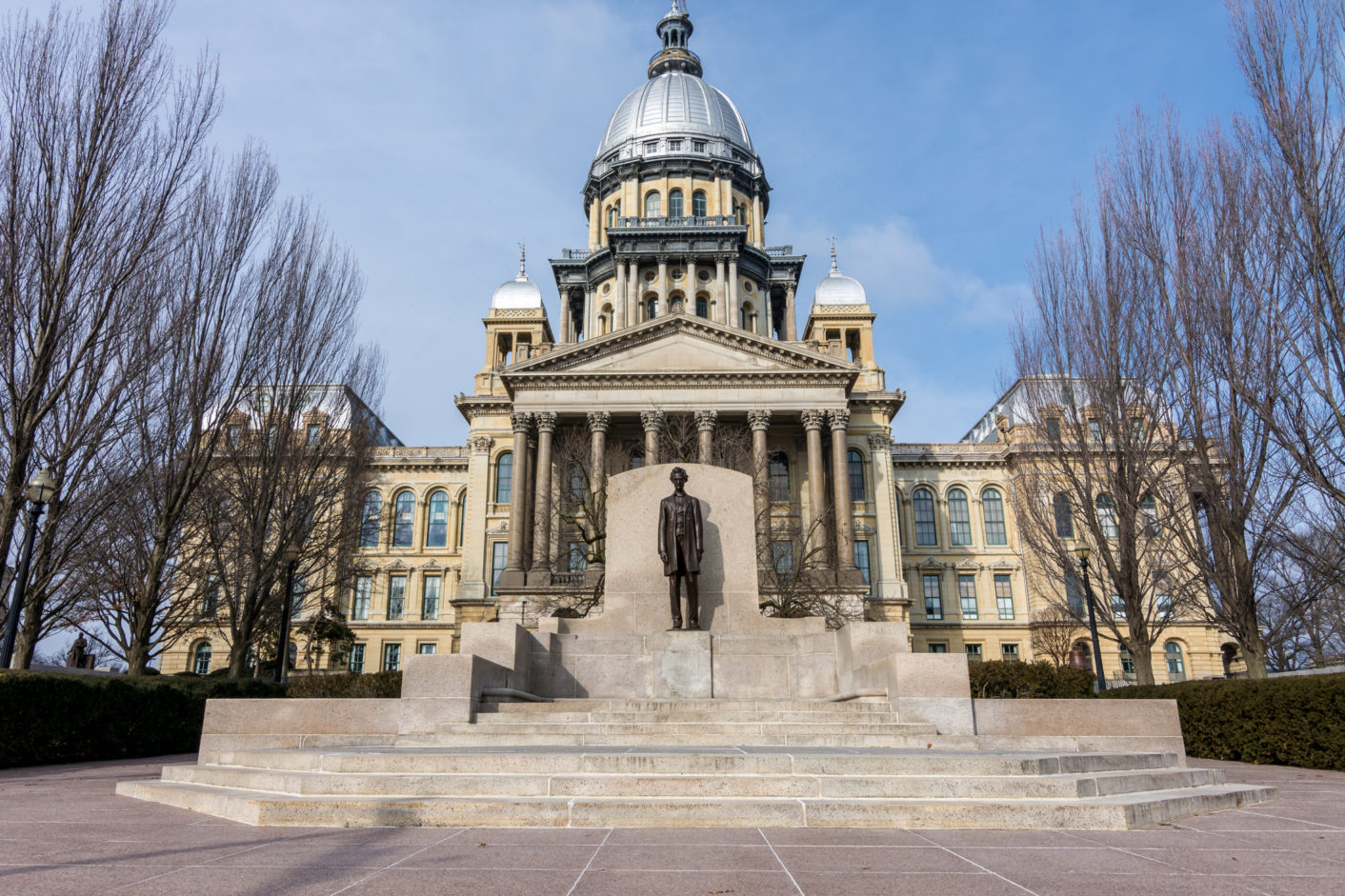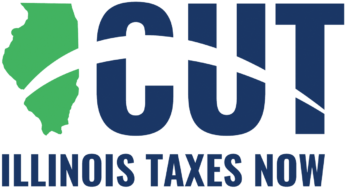
PROGRESSIVE INCOME TAX STUDY GUIDE
By Orphe Divounguy, Bryce Hill, Adam Schuster
Illinoisans will play a crucial role in deciding the state’s future on Nov. 3, 2020. That’s when they’ll take a vote on whether to scrap Illinois’ constitutional flat income tax protection and replace it with Gov. J.B. Pritzker’s $3.4 billion progressive income tax hike.
Original Illinois Policy Institute research on Pritzker’s proposal demonstrates the following, among other findings:
- Enacting a progressive income tax hike would ultimately cause less investment and increase Illinois outmigration, while harming workers and consumers.
- Removing the constitutional flat tax protection would lead to large tax hikes on middle-class Illinoisans.
- The progressive income tax rates that would go into effect should voters approve the constitutional amendment will not raise the revenue Pritzker’s office claims, forcing additional tax hikes or service cuts.
- In the only state to experiment with swapping a flat income tax for a progressive income tax in the last 30 years, Connecticut, state lawmakers made similar promises to those of Illinois lawmakers today. But Connecticut’s middle class ultimately saw higher income tax rates, higher property tax bills and more debt while the state’s poverty rate climbed.
Below is a rundown of the history, research and political promises surrounding the progressive income tax in Illinois.
Overview
What Illinoisans need to know about the progressive income tax
Answers to frequently asked questions regarding Pritzker’s “fair tax” proposal, including how the vote works, proposed income tax rates and its effect on property taxes.
Reality check on 5 false claims used to boost Pritzker’s ‘fair tax’
Breaking down the most common falsehoods used to garner support for a progressive income tax in Illinois.
Lessons from other states
How Connecticut’s ‘tax on the rich’ ended in middle-class tax hikes, lost jobs and more poverty
In the past 30 years, just one U.S. state has adopted a progressive income tax: Connecticut. The results were disastrous. And they should caution Illinoisans.
California’s ‘fair tax’ hike spurred taxpayer exodus, hurt middle class and went mostly to pensions
New research out of Stanford University shows California’s progressive income tax has triggered a wealth exodus, yielded much less revenue than expected and lasted longer than promised.
With Illinois on deck, state tax hikes lost big at the ballot box
In red and blue states with referenda on the ballot, voters made choices to protect their pocketbooks from higher taxes. With a major tax hike on deck for November 2020, could Illinois be next?
Progressive income taxes don’t reduce income inequality
Before the Great Recession, states with progressive income taxes had higher income inequality than states with flat or no income tax. A decade later, not only do states with progressive income taxes still face higher income inequality, but the difference in income inequality between them and states without progressive income taxes remains the same.
Effects on Illinois outmigration
Pritzker’s tax plan would worsen Illinois’ people problem
Pritzker’s graduated income tax hike would result in more Illinoisans fleeing the state. Since 2011 – the year the IRS began reporting migration by income level – net outmigration has been accelerating for all groups in Illinois, with the group most likely to flee being the wealthy.
Illinois population loss worsens for 5th straight year
Progressive income tax states are hemorrhaging residents to more competitive tax environments, losing nearly 300,000 residents to other states over the past year as a group. Meanwhile, states with no income tax gained more than 300,000 residents. And taken together, flat income tax states excluding Illinois also gained residents from other states.
Middle-class tax hikes
A look at the rates required to fund Pritzker’s promises
In order to close the deficit and pay for Pritzker’s promised new spending, the typical Illinois family would see a tax hike of $269 under a progressive income tax rate structure. These rates would cost Illinois’ economy $14 billion in forgone economic activity and more than 53,000 jobs.
Without pension reform, progressive income tax amendment guarantees tax hikes on Illinois’ middle class
Even using the most generous assumptions regarding natural growth in Illinois’ income tax revenue, income tax rates would have to be raised on everyone in order to pay down the unfunded pension liability within the next 40 years. This also assumes every dime of additional revenue goes to pensions and would require much higher tax rates than currently proposed.
Pritzker’s $3.4B income tax hike can fund less than 4 months of state pension costs
Without reform, Illinois’ pension problem will continue to force tax hikes while crowding out the core services residents need.
Revenue claims and political promises
Motivated math: Pritzker ‘fair tax’ numbers don’t add up
Pritzker claims progressive tax rates will generate $3.4 billion in new revenue, but his revenue projections overstate how much a progressive income tax hike would actually bring in by $1 billion to $2 billion.
5 broken tax promises show why Illinois voters distrust Pritzker’s ‘fair tax’
Illinois politicians have a history of broken promises about how they tax and spend residents’ money.
Effects on business investment
As nation celebrates small businesses, Illinois politicians take them for granted
As S-corps and partnerships are the most common filing status for small businesses, the progressive tax structure passed by the General Assembly could affect nearly 112,000 such entities in Illinois – 30% of them.
Pritzker progressive tax amendment allows for nation’s highest tax on business income
Illinois Gov. J.B. Pritzker’s amendment would allow Illinois to impose an effective corporate income tax rate of up to 15.22% – the nation’s highest by far.
